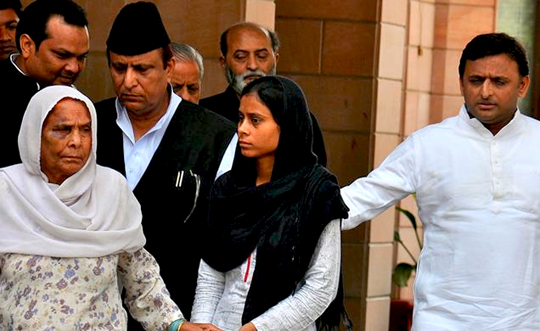New Delhi, Oct 5: Home Minister Rajnath Singh on Sunday said the lynching of Mohammad Akhlaq, following rumours he had stored beef in his house, is an issue “to which communal colour must not be added.”
Mr. Singh’s appeal came even as it emerged that the National Commission for Minorities (NCM) has served a show cause notice on the district magistrate of Gautam Buddh Nagar on the incident. Dadri, the area where the incident occurred, falls within this district in Uttar Pradesh.
The notice was sent on September 30 after a request by Congressman Shehzad Poonawalla. The NCM has given the magistrate seven days to respond.
The Ministry of Minority Affairs, apart from one statement from senior minister Najma Heptullah, reiterating that the report of the State Government to the Home Ministry was awaited, maintained a studied silence.
“We must wait for the report. My work is to create confidence between communities,” she had said in Kolkata two days ago.
Her party colleague and controversial MP from Unnao, Sakshi Maharaj, termed the compensation given to the lynching victim’s family by the Uttar Pradesh government, an “appeasement.”






Comments
Add new comment